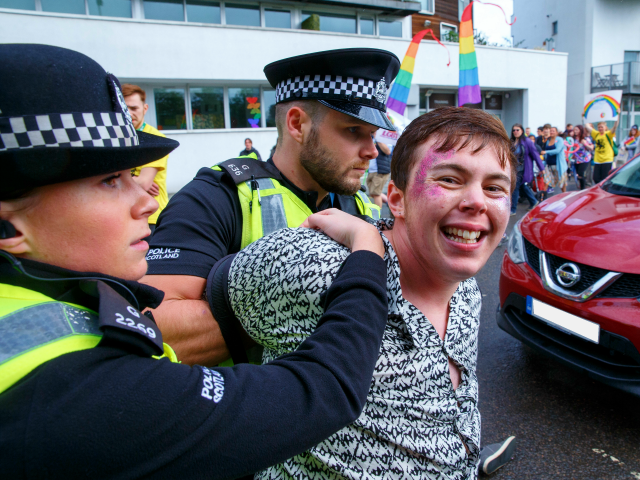With soaring rates of “high harm” crime, falling arrest rates, and a shrinking proportion of crimes resulting in charges being brought, police forces in Britain are finding it “increasingly difficult” to keep the public safe, an official report has warned.
The National Audit Office (NAO) also highlighted sinking public satisfaction rates and the decline of proactive policing measures such as breathalyser tests to prevent crime as evidence that forces are “struggling” to deliver effective services.
According to the report, the arrest rate fell from 17 per 1,000 population in 2014-15 to 14 per 1,000, while the proportion of reported crimes which resulted in a charge was down from 15 per cent three years ago to just nine per cent in the year to March.
Police Forces Taking Days to Respond to 999 Calls … While Hate Crime Declared a Priority https://t.co/cIzLXmKPGM
— Breitbart London (@BreitbartLondon) March 23, 2018
“We have found some indication that the sector as a whole is finding it increasingly difficult to deliver an effective service,” asserted Whitehall’s spending watchdog in the report, which warned that forces are under significant “stress” as a result of funding cuts amounting to 19 percent in real terms since 2010/11.
Rising rates of “high harm” crimes including sex attacks, stabbings, and gun violence were also flagged in the 48-page document as increasing pressure on resources, as it revealed officer numbers have declined by around 15 percent since March 2010.
Amyas Morse, head of the NAO, said: “The financial sustainability of police forces and their ability to deliver effective services is reliant on the Home Office understanding national and local demands and allocating funds fairly. There are signs that forces are already experiencing financial strain and struggling to deliver effective services to the public.”
UK Police to Treat Diversity Promotion Like ‘Critical Incident’, Forces Set to ‘Embed Equality into All Activities’ https://t.co/PR2ifWNC5L
— Breitbart London (@BreitbartLondon) September 1, 2018
The incoming head of the Police Federation admitted last month that forces are increasingly “failing the public”, as he warned the service was “moving into an area where some crimes will not be investigated, whereas two to five years ago they were”.
While senior officers and politicians including London Mayor Sadiq Khan frequently cite the reduction of manpower and government funding to explain soaring crime rates in Britain, far less discussed are the effects of recent police focus on so-called diversity, and on “hate” incidents, on forces’ resources.
For example, on the Sunday evening before the NAO report’s release Tuesday, South Yorkshire Police were urging the public to “report non-crime hate incidents”, which it said, “can include things like offensive or insulting comments, online, in person or in writing”.
In addition to reporting hate crime, please report non-crime hate incidents, which can include things like offensive or insulting comments, online, in person or in writing. Hate will not be tolerated in South Yorkshire. Report it and put a stop to it #HateHurtsSY pic.twitter.com/p2xf6OLoQZ
— SouthYorkshirePolice (@syptweet) September 9, 2018
The tweet, which attracted more than 5,000 comments from members of the public suggesting officers might have had more productive things to do with their time, came after news earlier this year revealed that forces wasted thousands of hours looking into more than 11,000 “hate incidents”.
Despite emerging against a backdrop in which the vast majority of robberies go unsolved, with forces neglecting even to investigate an increasing number of burglaries, the National Police Chiefs’ Council defended the figure, claiming rules requiring a probe into every single “hate” report were “vital”.

COMMENTS
Please let us know if you're having issues with commenting.